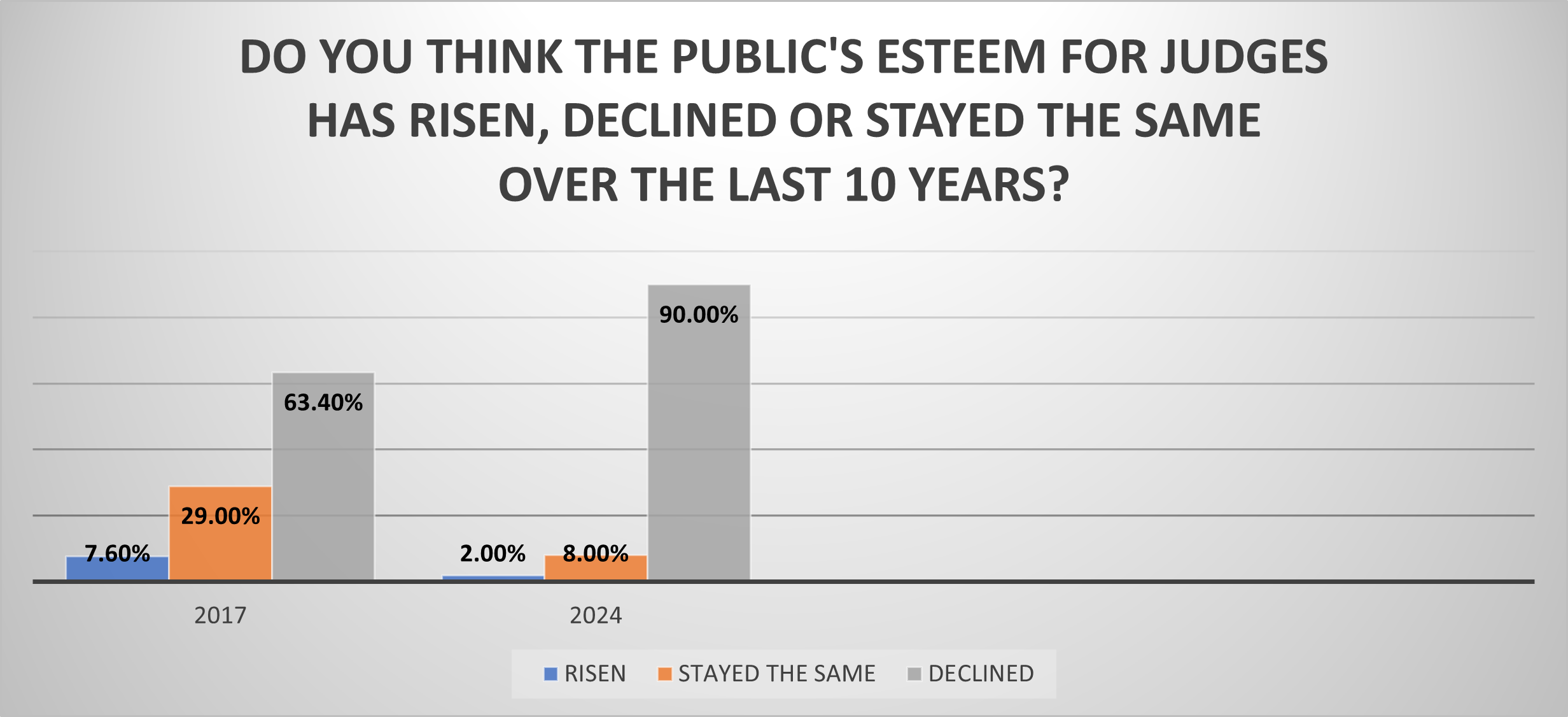An intensive four-day course on caseflow management for state judges at will be led by a retired judge whose early adoption of technology dramatically improved caseflow in his own home state court. The Hon. Chad Schmucker, president of the NJC, will offer opening remarks for the Effective Caseflow Management course offered at the College in Reno July 13, 2015.
» This story appeared in the May 2015 issue of The Judicial Edge

President Schmucker, first as a circuit judge for 20 years in Jackson, MI, and then as state court administrator, oversaw management of Michigan’s 246 trial courts for three years before becoming president of the NJC in Reno in January 2014. In Michigan’s judiciary, Schmucker was known to have a knack for numbers, operating his courtroom efficiently and cooperatively, and was adept at finding technological solutions to streamline operations.
According to Jackson Citizen Patriot newspaper reports from the early 1990s, Schmucker handled three times as many cases as the other two circuit judges. Schmucker’s nickname back then was “Rocket Docket” because he moved through cases so quickly.
“I don’t want people to misconstrue that term,” Schmucker said of the Rocket Docket nickname.
“Ideally, it starts on Day One when the case is filed and continues through to final case disposition. Consistency, clarity, and accountability are hallmarks of judicial leadership in caseflow management.”
— Hon. Chad Schmucker
The rapidity with which he was able to move cases was based more on being an “early adopter” of new ideas and technology such as email, differentiated case management, video court reporting, and telephone hearings, Schmucker explained. He also supported specialty or “problem-solving” courts that dealt more effectively with recurring issues in the judiciary.
“I am proud of that court. Our staff was well trained. I think we provided a good service for the public,” said Schmucker.
Effective Caseflow Management — designed for judges, administrators, and court managers — provides a rigorous examination of the components of effective caseflow management. Tim Dibble, Vice President at the Justice Management Institute, worked with the NJC and co-faculty to build the new curriculum. In addition to Dibble, faculty include the Hon. Lori Walkley (Cleveland County, OK) and Zelda DeBoyes (Aurora Municipal Court, CO). After taking the course, participants will be able to identify the elements of caseflow management, develop strategies for handling resistance to change, form criteria and time standards, and explore methods for getting and keeping judicial compliance.
Schmucker’s opening remarks will center on how a large backlog of cases (the result of poor case management) sacrifices procedural fairness, counsels’ time and clients’ money, efficient jail operations, court resources, and peace of mind for the judge and court staff.
“Fixing a large backlog of cases cannot be done overnight nor, in most instances, by a single judge,” Schmucker said.
Effective management requires buy-in from court staff, attorneys, and fellow judges.
“Ideally, it starts on Day One when the case is filed and continues through to final case disposition. Consistency, clarity, and accountability are hallmarks of judicial leadership in caseflow management.”
More on Caseflow Management from Judge Schmucker
» 5 Pitfalls of Poor Caseflow Management
The NJC offers Effective Caseflow Management, July 13-16, 2015 in Reno, NV. This course will help participants identify the elements of effective caseflow management, develop strategies for handling areas resistant to more effective caseflow management, form criteria and time standards for cases, and explore strategies for getting and keeping judicial compliance.

RENO, NV (PNS) – As they eye their inaugural football season this fall, the Gaveliers have question marks...

In what may reflect a devastating blow to the morale of the judiciary, 9 out of 10 judges believe the publi...

RENO, Nev. (Jan. 26, 2024) — The nation’s oldest, largest and most widely attended school for judges �...

RENO, Nev. (Feb. 7, 2024) — National Judicial College President & CEO Benes Z. Aldana received the Am...

It’s the bear, by a clear majority. A bear to be called Bearister. January’s Question of the Month* ...